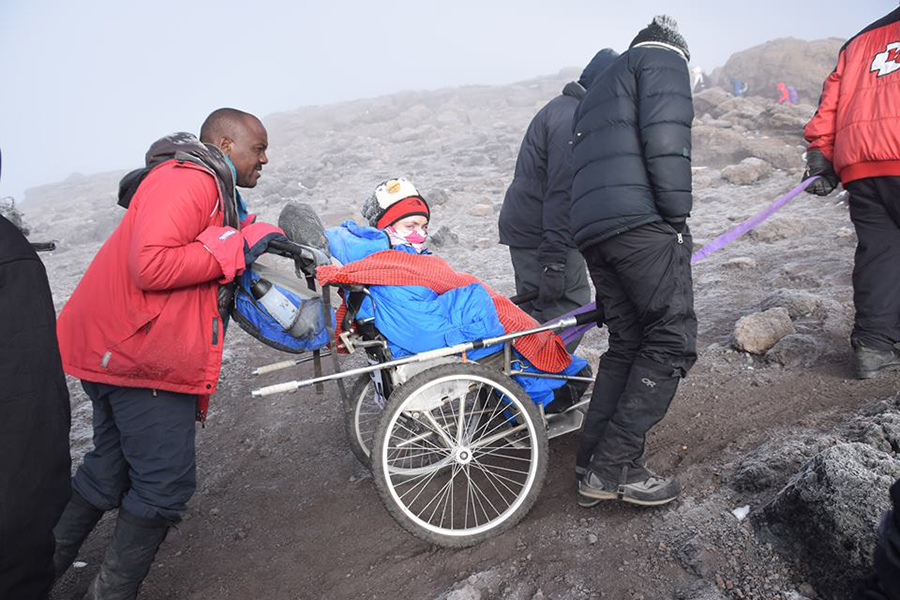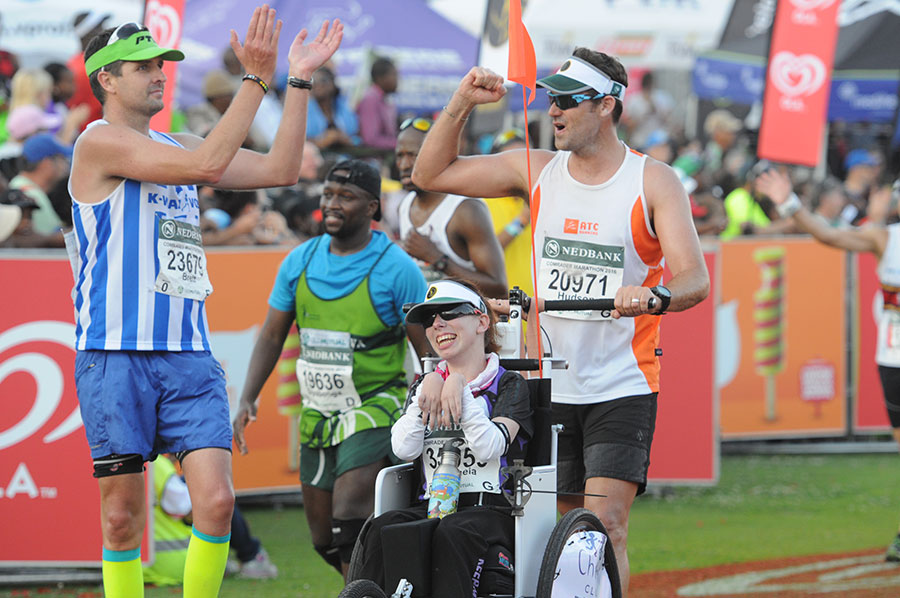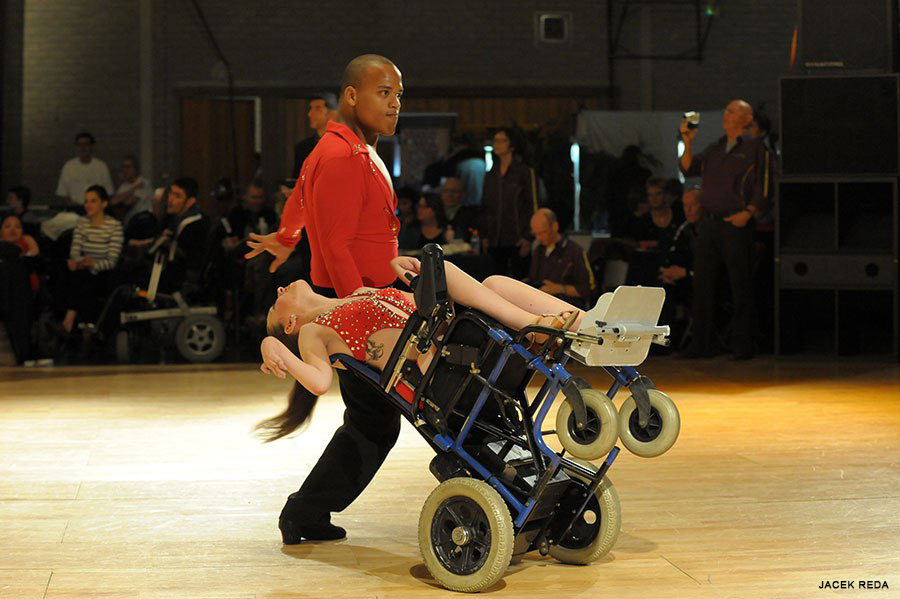At around 14,000 ft. above sea level, on a bleak, rocky path on Kilimanjaro, the tallest mountain in Africa, Chaeli Mycroft’s climbing partner turned to her and said, “Can you see those yellow people over there?”
Mycroft’s party had just passed a dozen other climbers, many of them Asian. Horrified, she replied, “Adam, you can’t talk about people like that!” To which Adam replied, “No, I can actually see yellow people – like Bart Simpson!”
It was the effects of oxygen deprivation at high altitude, and 32 hours without sleep, that was having a hallucinatory effect on the small group that had accompanied Mycroft on her first attempt at climbing a mountain. At 16,000 ft. Kilimanjaro is no ordinary mountain. And neither is Mycroft your average 21 year-old. She was born a quadriplegic and relies on a motorized wheelchair for mobility and her family to bathe, feed and care for her. If you think Kilimanjaro is a remarkable achievement for someone with zero physical independence, consider that Mycroft has already racked up a string of world firsts, that most people would rarely achieve in a lifetime.
In 2011, at the age of 17, she won the International Children’s Peace Prize, the equivalent of the Nobel Peace Prize, but for kids. And in May this year became the first wheelchair athlete to complete the Comrades Marathon in South Africa, a 56-mile ultramarathon that has been run every year since 1921. In the marathon’s 95 year history, it took a 21 year-old, quadriplegic girl to break the official rules, that had seen countless other wheelchair athletes turned away in the past.
Many able-bodied people assume disability is something to pity, but Mycroft has other ideas. “My parents made me view my physical impairments as not being an excuse for doing nothing,” she says. “I was raised with the idea that I live in an able-bodied society and that my impairments do not give me the right to put my hand up and say that I can’t do anything.” Chaeli chooses the word “impairment” for herself as she thinks that society disables people through their behaviour and actions towards the impairments they see in others. Did I forget to mention that she also does ballroom dancing? (pictured above)
Beyond the extreme, physical endurance events she has tackled to make this point, Mycroft co-founded The Chaeli Campaign in 2004, that aims to mobilize the minds and bodies of children with impairments. A Pay-It-Forward Ambassadors programme for ages 9-14 was also established to promote social change, inclusion and diversity, in the hope that young minds exposed to big ideas will go on to achieve the extraordinary. Having embarked on becoming an agent of change herself at age 9, Mycroft knows that producing young leaders at any age is possible.

Unable to afford a motorized wheelchair, she went around her neighborhood in Cape Town with her sister and three friends, the youngest just 6 years-old, selling cards with her artwork on. By week seven they’d raised $2,000. Once The Chaeli Campaign had raised enough money for her motorized wheelchair, she saw no point in stopping, and she went on to raise funds for wheelchairs for the less fortunate, children with disabilities of Cape Town’s slums.
She was challenged in the first week when a neighbour opened his door and asked if they’d go away and stop bothering him if he gave them a dollar. “It was my first attempt to do something with a social purpose, and this incident really made me question what I was doing,” she recalls. “We said that if he gave us $2 he had a deal – and then celebrated the fact that he had paid us for nothing – and didn’t even expect the cards we were selling in return!”
Many years later, after proving her grumpy neighbor wrong, Mycroft now calls herself an ‘ability activist’ and has sat in The Hague in the Netherlands, alongside Malala Yousafzai to receive international accolades from Nobel laureates and been honored in New York at the World of Children Awards.
Many people living with impairments call themselves disability activists, but she thinks that puts the focus on the wrong things. “If you’re a disability activist you’re selling a picture of a sad, disabled person who doesn’t have their rights met. I think it’s important to focus on the ‘busy’ and ‘potential’ aspects of disability. If we exclude people with disabilities we’re not embracing all our human capital, and confining people with impairments to their houses.”

“I am driven by people who are negative, she says. “When people say I can’t do something it makes me determined to prove them wrong. In an era where young people are not using their voices, society forgets that children are important too. If kids are given the opportunity they will say what they need to say. It’s important to create little humans who believe in themselves, because if they stand by what they say, that sends a good message for our future.”
Mycroft is a firm believer that you should put your name to a cause, because you can’t be an anonymous activist – people need a face and personality to connect with. She doesn’t think the big, household-name heroes are necessarily the best people to inspire others either.
“My heroes are the little kids who don’t let their disability get in the way or the able-bodied kid who asks a disabled kid to play with them. People obsess too much over people with good publicity teams that have turned them into heroes.”
At 21, Mycroft still has many challenges she’d like to tackle. For someone with a distinct physical disadvantage, it’s a sobering reminder to the rest of us that we should have no excuses for attempting the impossible.
“Taking the easy route is boring,” she says. “I think it’s important to have a big goal. Having small goals is achievable, but it’s not challenging. If you have a dream that’s impossible, that’s awesome!”




































